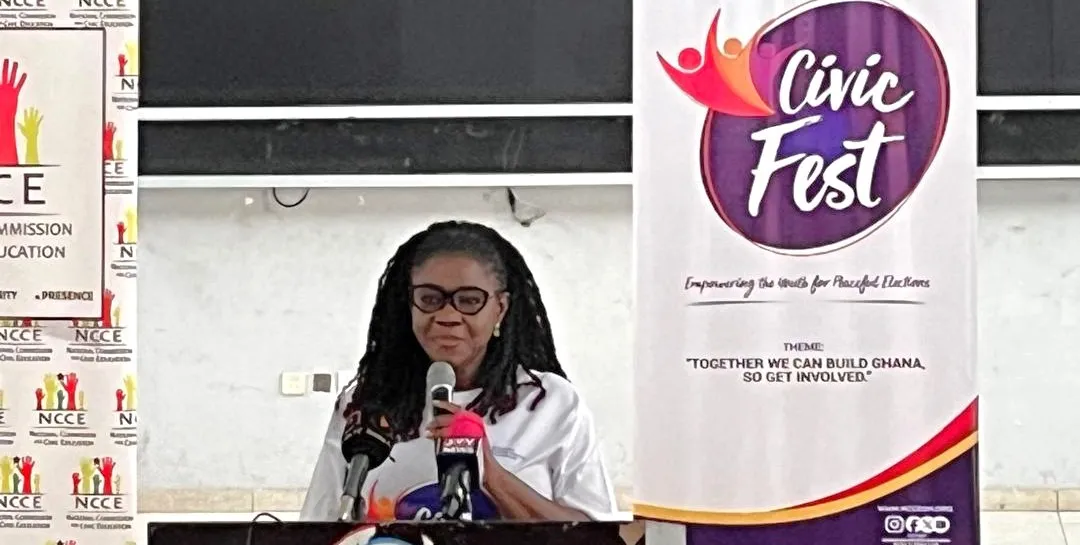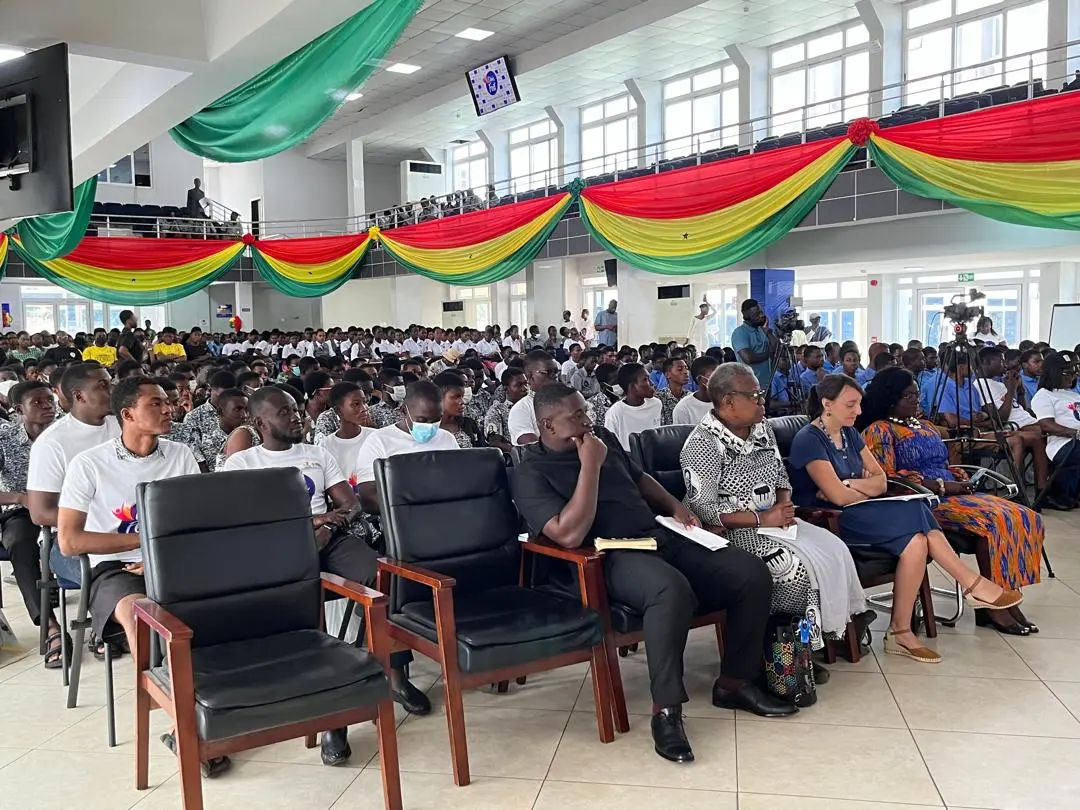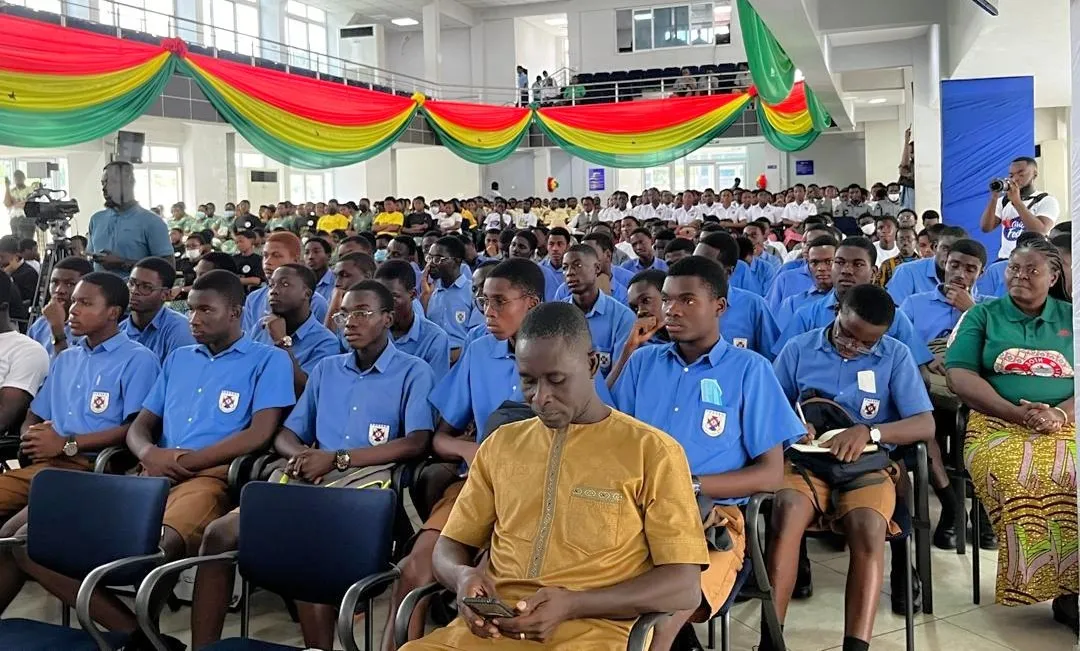Ms. Kathleen Addy, Chairperson of the National Commission for Civic Education (NCCE), has urged Ghanaians to exercise extra restraints on the kind of information they receive and share, especially as the country heads to the polls in December.
According to her, that was important if the country was to combat misinformation and disinformation before, during, and after the elections and safeguard its peace and democracy.
The Chairperson of the NCCE gave the caution in an interview with the media on the sidelines of an engagement with Senior High Schools’ Civic Education Clubs, dubbed: “Civic Fest,” in Accra, over the weekend.
Organised by the Commission with support from the European Union (EU), the event, among other things, was to sensitise the youth on their civic duties and responsibilities and empower them for a peaceful election.
It formed part of the Women and Youth in Democracy, an initiative of the EU and the NCCE, and was held on the theme: “Together We Can Build Ghana, So Get Involved.”
Ms. Addy said curbing the spread of misinformation and disinformation, particularly in the run up to the country’s elections, was crucial in sustaining the peace that Ghanaians had enjoyed over the past three decades.
To achieve that, she said, it would require commitment, self-discipline, and conscious efforts from all citizens, restraining themselves from sharing information that had the potential to cause mayhem.
“The thing with misinformation, and fake news and all of those things is that it starts and stops with us,” she noted.
“When something falls in your inbox or you see something on your timeline that you know is probably false, that you can see is deliberately put there to cause chaos, to cause people to be angry, to incite others to violence and misbehaviour, when you see those things, let it end with you, don’t you also go ahead and forward it.
“If all of us commit to that action alone, the misinformation and fake news problem will go down significantly,” Ms Addy stressed.
She indicated that as a Commission, it was undertaking various activities and engaging with several interest groups all geared towards a peaceful election come December.
One of such initiatives is the reactivation of the Commission’s inter-party dialogue committees in the various districts across the country to ensure quick resolution of conflicts at the local levels.
“These committees are committees that have representation from political parties, faith based institutions, and traditional authorities.
“And basically, what they do at the district level, at the lowest level of governance, which is the districts, is to ensure that whatever political misunderstandings that arise in that district, that committee will sit and try and resolve the problem before it escalates and becomes a major problem where we now have to use state resources to calm some fire,” she stressed.
Additionally, Ms. Addy said, the Commission was engaging political party youth activists as well as in-school youth, on the need to protect and sustain the country’s democracy.
On engaging in-school youth, she said, the Commission was revamping a number of civic education clubs in SHS across the country, which had remained inactive since the outbreak of the COVID-19 pandemic in 2020.
Ms. Addy called on the alumni of the various schools to support the civic education clubs to grow, and achieve the goals for which they were established.
As part of the engagement, students were made to present artwork on four thematic areas – religious intolerance, Mis/disinformation, election violence and monetisation of politics – to show their understanding of issues relevant to the election the year.
Some schools that participated in the Civic Fest were Achimota SHS, Presbyterian Boys’ SHS, Saint Thomas Aquinas, Accra High SHS, Labone SHS, Accra Academy, Saint Mary’s SHS, Odogorno SHS, Armed Forces SHS and Accra Girls SHS.
Ms Slyvia Tizzi, Programmes Officer, EU Delegation to Ghana, stressed the need for the youth to be active participants in the country’s democracy.
She commended the NCCE for creating a space of dialogue where the youth could access information and participate meaningfully in the country’s democracy and electoral process.
Source: GNA



_
Follow us on our social media pages for more stories and posts from the NCCE.
https://www.instagram.com/nccegh1/
https://www.facebook.com/nccegh/


Leave a comment